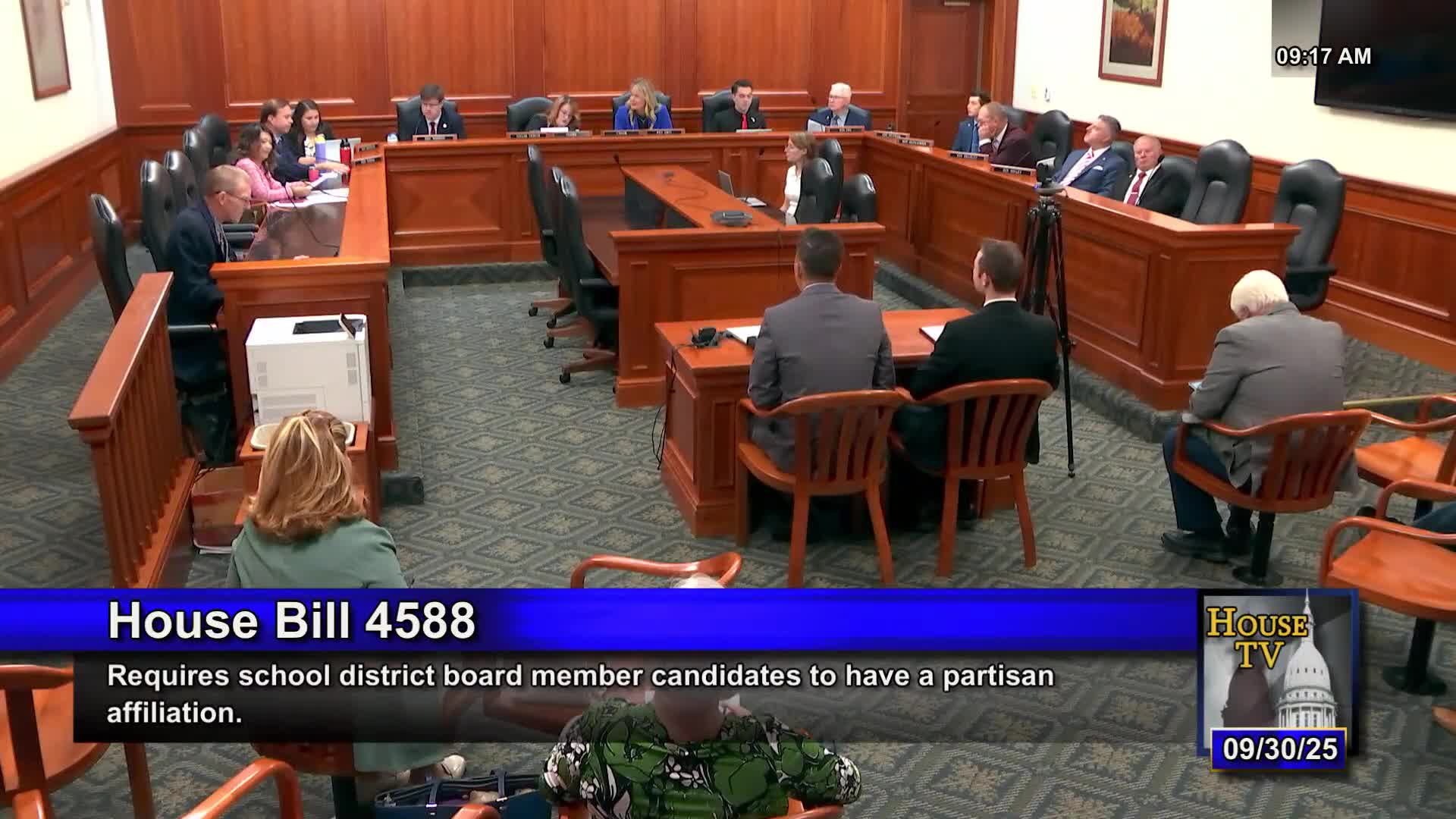School Board Members Discuss Duties and Risks of Partisan Elections
October 01, 2025 | 2025 House Legislature MI, Michigan
This article was created by AI summarizing key points discussed. AI makes mistakes, so for full details and context, please refer to the video of the full meeting. Please report any errors so we can fix them. Report an error »

The Michigan Legislature convened on September 30, 2025, to discuss critical issues surrounding election integrity, particularly focusing on the implications of partisan labels for school board elections. The meeting featured a series of inquiries and testimonies aimed at understanding the roles and responsibilities of school board members, as well as the potential impact of partisan affiliations on educational governance.
The session began with a member expressing gratitude for the service of school board trustees, acknowledging the challenges in finding individuals willing to take on such roles. The discussion quickly shifted to the specific duties of a school board trustee, with emphasis on the importance of representing community voices and setting educational policies rather than laws. The trustee clarified that their responsibilities include voting on policies, approving budgets, and hiring or firing superintendents.
A significant point of contention arose regarding the necessity of partisan labels for school board members. One legislator questioned how these roles could be considered partisan, given that the core functions—such as budget approval and curriculum oversight—are fundamentally nonpartisan. The trustee responded by likening the need for transparency in political representation to understanding the ingredients of a consumer product, suggesting that voters should know the political affiliations of those they elect.
The conversation then transitioned to the curriculum selection process, highlighting that while state standards guide educational content, local school boards also play a crucial role. A representative raised concerns about the potential for partisan elections to disrupt educational consistency, referencing the Mississippi education model as an example of how nonpartisan governance can foster consensus and stability in educational policies.
In conclusion, the meeting underscored the ongoing debate about the implications of partisan school board elections. While some legislators expressed concerns about the potential for instability and inconsistency in educational governance, others maintained that partisan identification could enhance transparency in representation. The discussions reflect a broader dialogue about the future of educational policy-making in Michigan and the balance between community representation and political affiliation. Further deliberations are expected as the legislature continues to explore these critical issues.
The session began with a member expressing gratitude for the service of school board trustees, acknowledging the challenges in finding individuals willing to take on such roles. The discussion quickly shifted to the specific duties of a school board trustee, with emphasis on the importance of representing community voices and setting educational policies rather than laws. The trustee clarified that their responsibilities include voting on policies, approving budgets, and hiring or firing superintendents.
A significant point of contention arose regarding the necessity of partisan labels for school board members. One legislator questioned how these roles could be considered partisan, given that the core functions—such as budget approval and curriculum oversight—are fundamentally nonpartisan. The trustee responded by likening the need for transparency in political representation to understanding the ingredients of a consumer product, suggesting that voters should know the political affiliations of those they elect.
The conversation then transitioned to the curriculum selection process, highlighting that while state standards guide educational content, local school boards also play a crucial role. A representative raised concerns about the potential for partisan elections to disrupt educational consistency, referencing the Mississippi education model as an example of how nonpartisan governance can foster consensus and stability in educational policies.
In conclusion, the meeting underscored the ongoing debate about the implications of partisan school board elections. While some legislators expressed concerns about the potential for instability and inconsistency in educational governance, others maintained that partisan identification could enhance transparency in representation. The discussions reflect a broader dialogue about the future of educational policy-making in Michigan and the balance between community representation and political affiliation. Further deliberations are expected as the legislature continues to explore these critical issues.
View full meeting
This article is based on a recent meeting—watch the full video and explore the complete transcript for deeper insights into the discussion.
View full meeting
